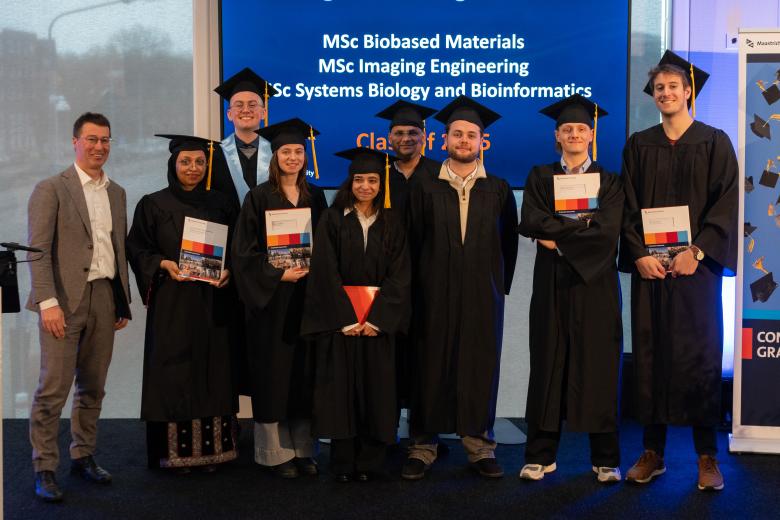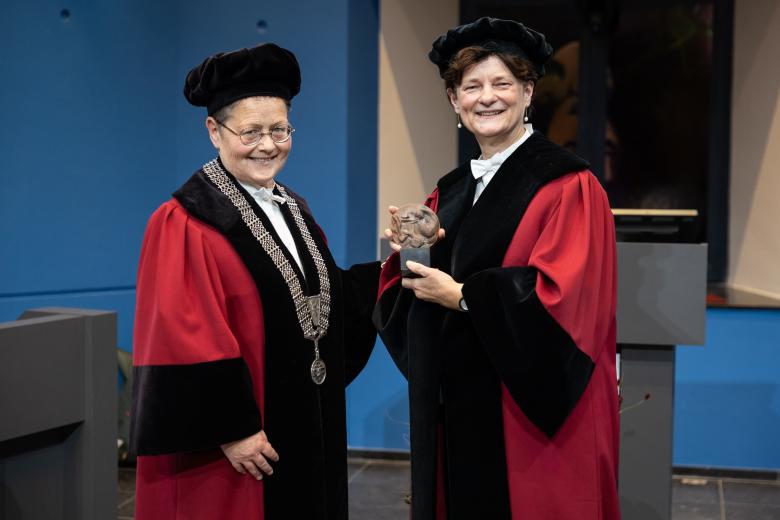Kootstra Talent Fellowship voor Casper Webers
Casper Webers, post-doctoraal onderzoeker bij CAPHRI, heeft onlangs een Kootstra Talent Fellowship (KTF) toegekend gekregen.
Zijn onderzoek op de afdeling Reumatologie (MUMC+) richt zich op axiale spondyloartritis (axSpA), een chronische reumatische aandoening die vooral de lage wervelkolom aantast. Bij de behandeling van axSpA is de zogenaamde "ziekteactiviteit" een belangrijke uitkomst. Behandelingsrichtlijnen bevelen aan te streven naar remissie of een lage ziekteactiviteit, doorgaans door de ontsteking te onderdrukken. In de huidige praktijk kunnen echter zelfs patiënten die dit doel bereiken nog aanzienlijke symptomen hebben. Voorbeelden van dergelijke restverschijnselen zijn pijn en vermoeidheid.
- Dit artikel is alleen beschikbaar in het Engels -
Currently, there is no formal definition of residual symptoms in axSpA, which hinders further research in this area. Also, it is unclear how these symptoms impact the individual patient and society, and which patients have the greatest risk of experiencing these symptoms. In his two-year KTF project, Casper – together with prof. Astrid van Tubergen – will bridge these knowledge gaps.
First, he will collect and summarize the available research on residual symptoms in axSpA and similar rheumatic diseases. Next, he will interview patients with axSpA and clinical experts, to understand their perspective on residual symptoms: what kind of symptoms do patients in remission or with a low disease activity experience? Which symptoms should be considered to be residual symptoms, and which should not? What is the impact of these symptoms in daily life, for example on work participation? The results from these interviews will then be used to design a questionnaire and disseminate this in a larger patient population with axSpA, in order to assess the nature, extent, importance and consequences of residual symptoms. Finally, he will look for different patient profiles with regard to residual symptoms. It is expected that certain residual symptoms are more likely to present together in clusters. Also, there are probably patient and disease characteristics that make patients more – or less – vulnerable to residual symptoms. In large (inter)national datasets, Casper will use longitudinal cluster analysis to identify patient profiles (based on presence of residual symptoms and their impact on functioning and health), and link these profiles to patient and disease characteristics. As residual symptoms could depend on the disease stage, this analysis will be conducted in patient populations with early and late axSpA. In order to adequately capture the patient perspective, patient research partners will be involved throughout the project.
Altogether, the steps undertaken in this project should lead to a better understanding of what residual symptoms in axSpA are, who is most at risk for them, and when they are present during the disease course. As a result, patients can be better informed on the risk and relevance of residual symptoms, healthcare providers will know which residual symptoms are most important and which of their patients are most prone to experience them, and researchers in this area will know which patients to include and which outcomes to collect. On the longer term, this will lead to better treatment strategies and prognosis for residual symptoms in axSpA, which – in line with the vision of CAPHRI and the department of Rheumatology – will benefit both patients and society.

Lees ook
-
Beter concentreren en lekkerder in je vel dankzij een groen schoolplein
Kinderen op scholen met een groen schoolplein kunnen zich beter concentreren en vertonen socialer gedrag. Dat blijkt uit een vervolg op het langjarige project de Gezonde Basisschool van de Toekomst.
-
Ron Heeren benoemd tot fellow van de Netherlands Academy of Engineering
Professor Ron Heeren, universiteitshoogleraar in Maastricht en directeur van het Maastricht MultiModal Molecular Imaging instituut (M4i), is benoemd tot fellow van de Netherlands Academy of Engineering (NAE).
-
Prof. dr. Mirjam oude Egbrink ontvangt MUMC+-penning
Tijdens haar afscheidscollege op vrijdag 28 november is Prof. dr. Mirjam oude Egbrink door decaan Annemie Schols onderscheiden met de MUMC+-penning voor haar verdienstelijke carrière.